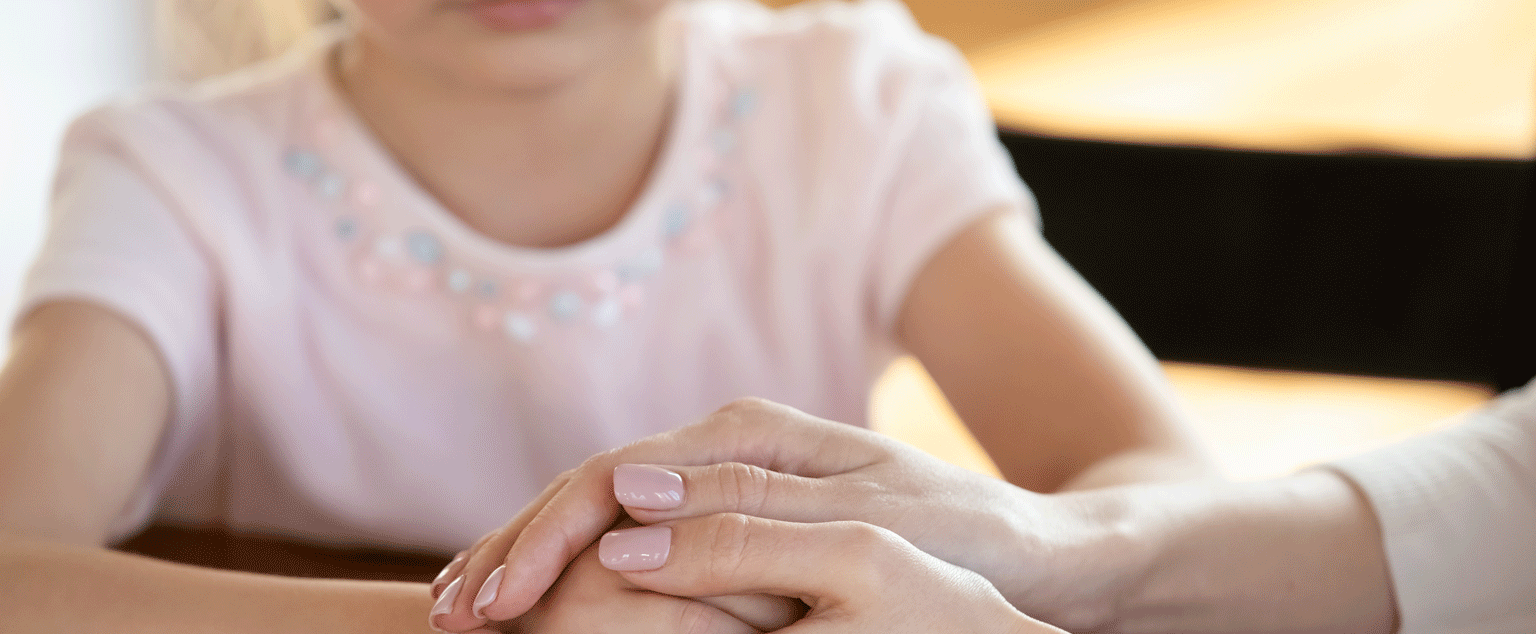How to Have Difficult Conversations with Your Children

Sometimes, you child might ask questions which don’t always have an easy answer. We offer some ways to support you in those conversations.
As a parent, you may be worried about what your child thinks and feels when they see the pictures in the news, overhear stories of violence and hate, and notice our anxiety about difficult things that might be happening at home or further afield.. When this happens, children are likely to feel confused, anxious, or have questions.
Children's Awareness
Children learn from what we say and don't say about the world and their place in it as well as from our actions. For young children in times of unease, the strength of our calm presence and simple reassurances can help to make the world a safe and manageable place.
As children get older and their understanding of the world outside their home grows, they not only need us to be calm and reassuring, but they may also need to ask questions and talk about the larger issues:
- Life is unpredictable; natural and human-made incidents periodically create catastrophe and tragedy. Why?
- Sometimes innocent people die, and some people are more vulnerable than others. Why?
- How can I help people who are hurting?
Of course, adults don't always have all the answers, but allowing children to voice their concerns and providing rational and thoughtful responses can be reassuring.
Some preschool and school-age children will react to the storms with anxiety and questions, others with little anxiety but lots of interest. Other children will experience little anxiety and little interest. All these responses are normal.
As a parent, you can support your child if you:
- Recognise that every child is an individual.
- Reassure your child of their own safety and security.
- Maintain routine and be consistent, as much as possible.
- Allow your child to play and talk through their feelings and understandings.
- Limit their exposure to scary images by reducing exposure to the media.
- Help your child participate in global events in ways that are meaningful to them.
Answering Children's Questions
If your child is interested in discussing current events or you'd like to raise the topic, be prepared with the facts of the situation and the appropriate language. The key points for talking to any child are to:
- Tailor your response to the individual child - keep in mind your child's age, personality, and level of interest.
- Ask what your child knows and is thinking about; answer their questions without overexplaining or providing more details than necessary.
- Know that your child is trying to make sense of the world and in doing so often can ask uncomfortable questions. It's important to try and answer these calmly and help them learn.
- Understand these are the moments you can help them learn. They look to adults to help shape their social-emotional skills so they can be thoughtful and compassionate members of a community. You can use your child’s questions and statements as "teachable moments" to introduce concepts of morality and develop character.
- If you are outside of the affected areas, your child may ask, "Could it happen here?" Younger children may be reassured simply that we will keep them safe. Older children may want to know more about the specifics of the situation.
- Be ok with showing your own emotion. Adults can model for children how to cope with difficult feelings and expressing empathy for others' anguish.
Tragedy, Children's Play & Teachable Moments
It is natural and important for children to reflect events around them. If tragic events are dominating the talk of adults and the news, you may find your child expresses their concern or interest in their questions, play, or artwork.
Play is the way children work through life events and it’s an important outlet during difficult times. Children may even re-enact their interpretation of the events. This may feel uncomfortable, but is normally not cause for concern.
Glimmers of Hope
Events of magnitude are often when communities come together in support of each other. Even if you are unable to offer support yourself, showing your child photos of others helping, the glimmers of hope in communities coming together to protest for change and heal together, can help expose them to the compassion of humans. Something often best demonstrated during difficult times. These are great "teachable" moments for the development of empathy and compassion in your child.
The most important thing you can do for your child is to be there, listen, be your most thoughtful self, and respond to their emotional and educational needs. The family can be a safe haven where your child can express their ideas and fears and be assured that you will do their best to protect them. It can be a place to teach them about the world that they will inherit.
There is no magic formula or right way to respond to a child struggling to understand a tragic event. It’s important to know and respect your child's way of being and coping, even when it’s different from your own. Further, if you are having difficulty coping with this very tragic event, it is important you seek support for yourself.





